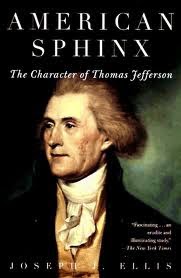It's been a busy week for me, reading-wise, because work at the library has been slow. Oprah and Brad Pitt have been wandering around town filming for a movie, and a lot of our usual patrons and traffic were diverted by a week of movie-making. I have had a great many hours to fill with nothing to fill with with, so I've been investigating the merits of Gutenberg.org on behalf of our patrons and doing some reading. Most importantly, I knocked off Good Natured, so that's another from the to-be-read list, which is getting smaller by the week.
Early on I finally managed whacking through The Last of the Mohicans, which stymied me several times as a child and theatened to do it again, but I was bound and determined to finish the darned thing. It's an early American frontier novel, the prototypical western, set in the French and Indian War (known in Europe as the Seven Years War). Two young women have decided to join their father at the front, which is questionably wise, and have to get there by trucking through the wilderness, filled with natural hazards and malevolent Indian politics. They are lead by a white man raised by Indians through various spots of peril until finally they reach some safety, despite having lost half their party. I liked the action scenes, but the dialogue -- grief. The crushing, mysterious wilderness of the colonial frontier has nothing on the thicket of words Cooper throws at the reader -- the occasional conversations in French were more comprehensible than his English at times.
I also encountered but did not read fully in part White Trash, which turned out to be a collection of essays on race and class. Some of the articles were engaging and promising, and others absolutely odious. One was so execrable -- featuring a young researcher who decided to live as "White Trash Girl" as an art project, pretending that her acting as vulgar as possible was a celebration of the common man,. One interesting note about this collection is that the authors ground themselves in the academic left; it's very odd to see the Frankfurt School brought out to bear on 'queer trailer culture'. Jim Goad used class distinctions in his Redneck Manifesto, but his had an authentic edge to it while these authors are simply trying too hard to be serious.
This week I will be focusing on the remainder of my Independence Day reading, and then at the weekend perhaps take on another of the TBR books.
Quotable
"Yes, yes, I have heard that a young gentleman of vast riches, from one of the provinces far south, has got the place. He is over young, too, to hold such rank, and to be put above men whose heads are beginning to bleach; and yet they say he is a soldier in his knowledge, and a gallant gentleman!"
"Whatever he may be, or however he may be qualified for his rank, he now speaks to you and, of course, can be no enemy to dread."
The Last of the Mohicans
"Like the Biami, apes do not need reflective surfaces to gain self-awareness. They are used to watching themselves in the social mirror; the spectators' eyes."
p. 71, Good Natured
"A real patriot can seldom or ever speak popular language. A false one will never suffer himself to speak anything else." Governor William Franklin, letter urging New Jersey legislature to seek reconciliation with Britain, 1776.
p. 23, The American Tory.
The old moral order, however imperfect it may have een, at least moved toward the virtues by way of the passions. If men were self-concerned, that order tried to expand the the scope of self-concern to include others, rather than commanding men to cease being concerned with themselves. To attempt the latter is both tyrannical and ineffective."
p. 129, The Closing of the American Mind
To Be Read Takedown Challenge
Antifragile, Nassim Nicholas Taleb
An Edible History of Humanity, Tom Standage
Small-Mart Revolution, Michael Shuman
Fighting Traffic: the Dawn of the Motor Age in the American City, Peter Norton
Earth, Richard Fortey
Galileo's Finger, Peter Atkins















